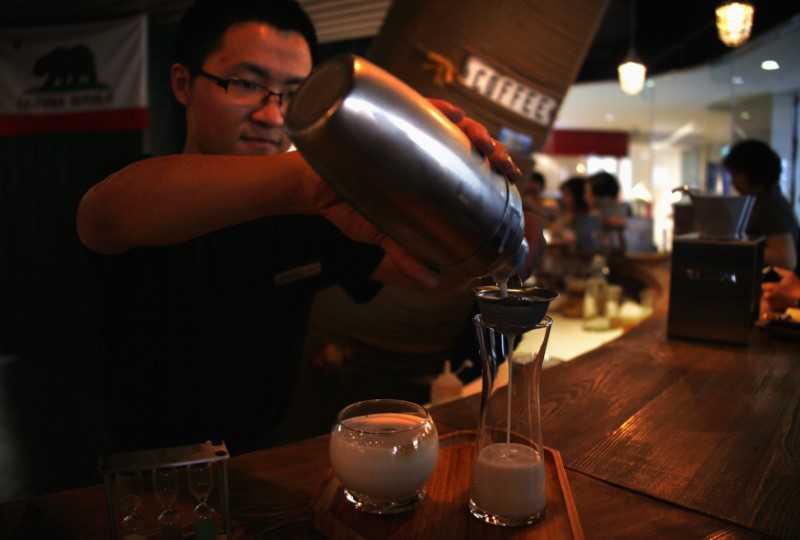Investing.com’s stocks of the week
BEIJING, April 4 (Reuters) - China's services sector growth eased to a four-month low in March as new business and employment grew at a slower rate, a private business survey showed, pointing to cooling demand in a sector Beijing is counting on to maintain economic growth.
The Caixin/Markit services purchasing managers' index (PMI) fell to 52.3 in March, from February's 54.2, the weakest since November. However, it still remained above the 50-mark that separates growth from contraction.
The lackluster survey results were in line with a separate survey by Caixin on Monday that showed activity in the manufacturing sector expanded at the slowest pace in four months.
The softness in the Caixin manufacturing PMI is raising concerns of a sharper-than-expected slowdown in the world's second-largest economy, although the private gauge was in contrast with the government's version, which was stronger than expected.
The two reports often diverge, possibly due to differences in the number and type of businesses surveyed.
The Caixin services PMI, which tends to focus on smaller firms, suggested growth in new businesses eased to a five-month low in March as some firms cited greater market competition and a drop in customer numbers, while new hires increased at the slowest pace in 19 months.
A report by Chinese jobs website Zhaopin showed competition among white-collar workers for jobs intensified in the spring. The increase in job seekers versus jobs resulted in a drop in average monthly salaries for the first time since the second quarter of 2017, to 7,629 yuan ($1,213). That was a 2.1 percent decline from the previous quarter.
Hurt by weakening demand, sentiment towards the 12-month outlook for business activity eased to a six-month low in March, with concerns over exchange-rate fluctuations and subdued growth in tourism weighing on overall confidence at the end of the first quarter.
However, input price inflation eased for a second straight month to a four-month low, while firms raised their prices charged at a slightly quicker pace than the previous month, suggesting higher profitability.
Caixin's composite PMI covering both the manufacturing and services sectors showed a similar pattern of softer growth, falling also to a four-month low of 51.8 in March, from the previous month's 53.3.
"Overall, the growth momentum of the Chinese economy weakened in March," said Zhengsheng Zhong, Director of Macroeconomic Analysis at CEBM Group.
Economic data so far this year suggests the Chinese economy's solid growth momentum of last year has carried over into the first quarter, with a government think tank forecasting gross domestic product will grow 6.9 percent in the first half.
While strength in China's economy will help underpin global growth, economists are sticking to forecasts that momentum will slow later this year due to a cooling property market and rising borrowing costs.
